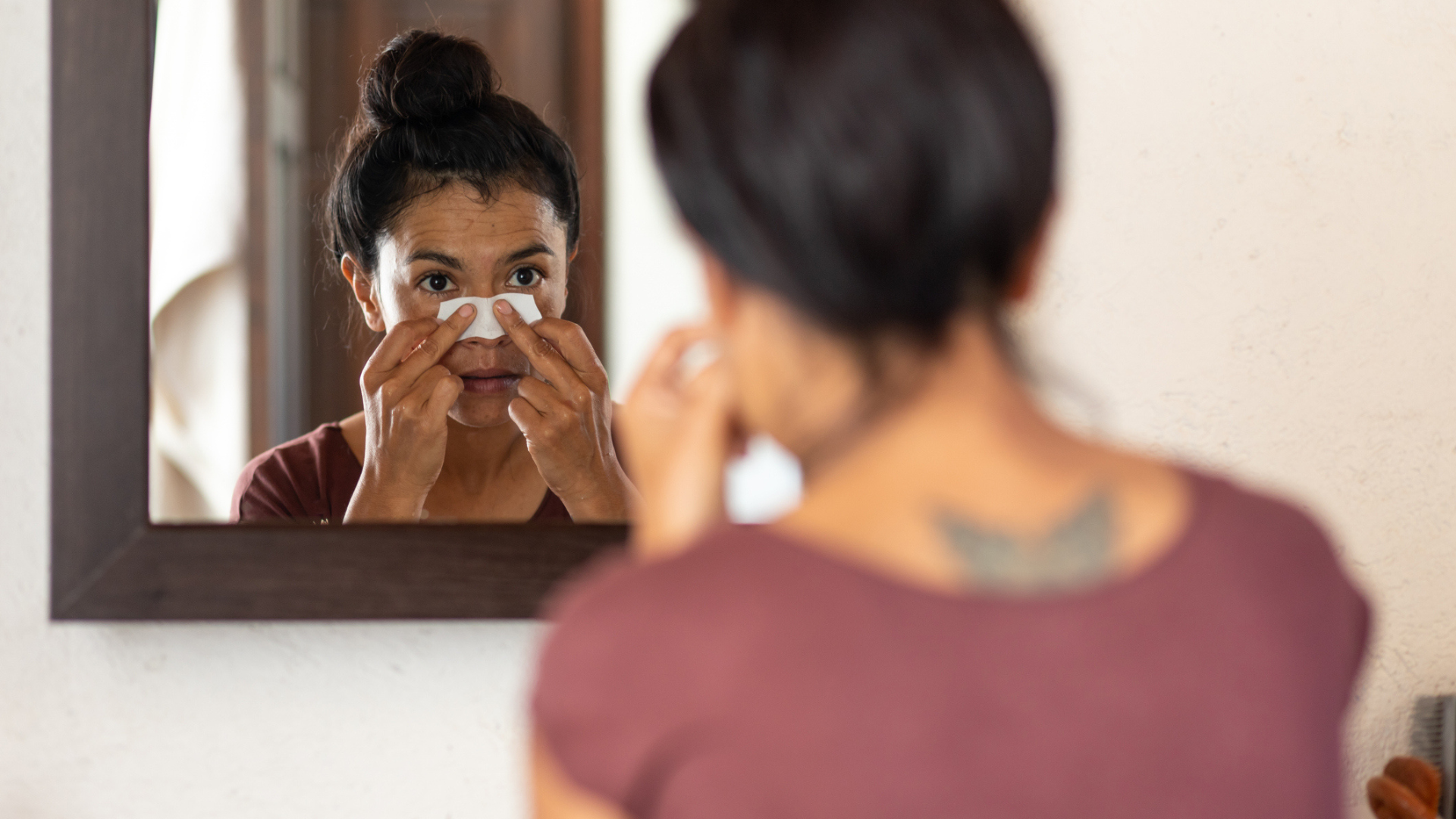
While snoring is a nighttime affliction (for both the snorer and anyone they share a bed with) there's plenty you can do to stop snoring before you even fall asleep. From changing your sheets more frequently to avoiding alcohol, there are preventative measure you can take by day to help stop snoring at night.
Snoring happens when the flow of air through your nose and throat is partially blocked, causing the tissues in your airways to vibrate more loudly. It's something that effects millions of people worldwide, and is the leading cause of sleep divorce. But it doesn't have to be the be all and end all of sharing a bed.
Here we speak to Dr. Hana Patel, resident sleep expert at Time4Sleep, and Dr. Chelsea Perry, Doctor of Dental Medicine and a snoring specialist, to get the rundown on what daytime habits can help prevent snoring at night. Here's what they recommend...
Daytime habits to help prevent snoring
There are things you can do during the day to make it less likely for you to snore at night. Experts recommend methods from practising good sleep hygiene to avoiding alcohol and changing your bed sheets regularly. Here’s why…
1. Avoid alcohol and smoking

Alcohol can make snoring worse by relaxing the muscles in your throat, mouth and nose, causing the tissues to vibrate and make noise as you breathe.
Similarly, smoking causes inflammation in the upper airway, causing it to swell and narrow. It also irritates the lining of the airways in your mouth, throat, nasal passages and lungs.
Curbing alcohol and cigarettes along with increasing your water intake will ensure your nasal passages are hydrated and the snoring stays at bay.
2. Get enough sleep
Sleep deprivation can cause snoring because it relaxes the throat too much, making it easier for air to be restricted and vibrate as it passes through. Establishing a healthy sleep routine is key to getting quality, undisturbed sleep.
Going to sleep and waking up at the same time every night, ensuring you get a solid amount of sleep, will regulate your circadian rhythm enabling you to get quality, snore-free sleep.
3. Change your bed sheets regularly
Experts agree that you should change your bed sheets weekly, or every two weeks at most. Dust mites and allergens build up in your sheets if you don’t wash them regularly, which aggravate allergy symptoms.
You won’t be able to see them, but the build up of these tiny creatures in your sheets can irritate your breathing passages and cause snoring.

Dr Patel says “creating a clean and comfortable sleep environment” will prevent any dust or allergens worsening your tendency to snore.
Wash your sheets, polish your bedroom and vacuum around your sleep space weekly to ensure your bedroom stays dust free and you stay on top of your sleep hygiene.
4. Maintain a healthy weight
Being overweight can also increase the likelihood that you will snore. Dr Patel tells us that “Excess weight, especially in areas such as the neck or stomach, can cause problems with a person’s ability to breathe properly, specifically when laying in certain positions.”
Maintaining a healthy weight through a balance of good nutrition and exercise will not only improve your overall quality of life but also the quality of your sleep.
5. Invest in the right mattress

Choosing the best mattress for your sleep needs can make all the difference for sleep quality. If snoring is seriously affecting your sleep, it may be worth investing in one of this year’s best smart beds designed with specialist technology to detect and prevent snoring.
With integrated artificial intelligence, some smart beds, like the TEMPUR-Ergo Power Smart Bed Base from Tempur-Pedic, can detect the sound of snoring, then respond by automatically adjusting to raise your head into a position that opens your airways to help reduce or stop snoring.
6. Try facial exercises
Cheek suction (where you repeatedly suck in your cheeks as if sucking on a straw), lip purse (where you repeatedly pucker your lips and hold it for 10 seconds before relaxing your mouth), tongue slides (where you slide your tongue on the roof of your mouth continuously for three minutes) or side-to-side jaw movements are all exercises that can build facial strength.
Dr Patel says: “It may seem strange at first but face, throat and tongue exercises can help to strengthen your muscles and airways to encourage clearer breathing.” A stronger facial structure will help you keep your mouth closed while you sleep, preventing snoring.

5 pro tips for stopping snoring fast
Even if you take preventative measures, sometimes we can't help but snore in the night. Head to our guide for full expert advice on how to stop snoring, but for now, here are 5 top tips.
1. Switch up your sleep position
Sleeping on your back is generally considered the worst position for snoring. Dr Patel explains: “When you lie on your back, your tongue will relax towards the back of your mouth, obstructing your breathing and causing you to snore as a result.” Try sleeping on your side for a quieter, more restful night’s sleep.
2. Use nasal strips
Not all typical preventative snoring measures are advised, but nasal strips are one of the good ones that work by widening the nostrils to increase airflow. While Dr Chelsea Perry warns against snoring mouth guards as they can cause discomfort, jaw pain or drooling, she says nasal strips can be effective.

3. Buy a humidifier
When the air in your bedroom lacks moisture, your mouth, nasal cavities and airways can dry out during the night. This causes you to snore because dry tissues vibrate more when you breathe in and out.
Dr Patel explains: “In months that you’re less likely to open windows, the air can become dry and as a result, your nasal passages suffer, making you more susceptible to snoring. A cool-mist humidifier can help to clear congestion.”
4. Sleep with your head raised
Sleep professionals have long recommended elevating your head rather than laying flat as a way to reduce snoring. You can do this by propping yourself up with pillows or using an adjustable bed base or mattress that can comfortably elevate your torso, and there’s a strong scientific cause for it.
Sleeping in an elevated position prevents the tongue and soft tissues in the throat from obstructing the air passage, promoting better airflow. By raising your head, pressure is removed from the throat and your tongue and jaw are forced forward. This position opens up the nasal passage, leading to reduced snoring.

Is snoring bad for you?
While snoring itself isn’t always harmful, it can indicate underlying issues and significantly affect the quality of your sleep, as well as that of your partner.
The main concern around snoring is that it can be a sign that you have sleep apnea, a serious condition where breathing repeatedly stops and starts during sleep.
Dr Perry says: “Snoring can be linked to health issues like sleep apnea, which can disrupt sleep and cause fatigue, headaches and increased cardiovascular risk. It’s a good idea to get checked out if snoring is loud or leads to frequent wake-ups.”







